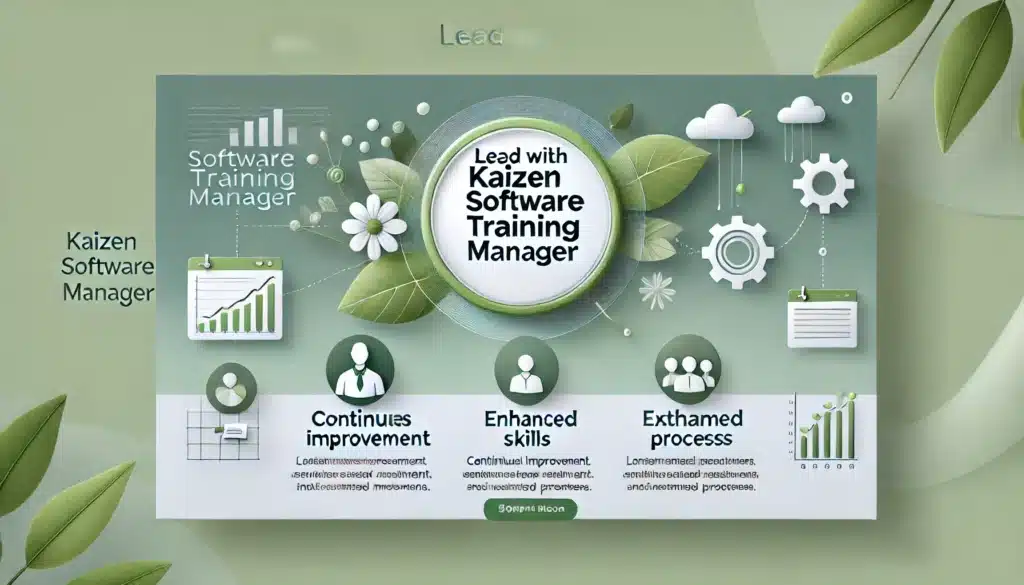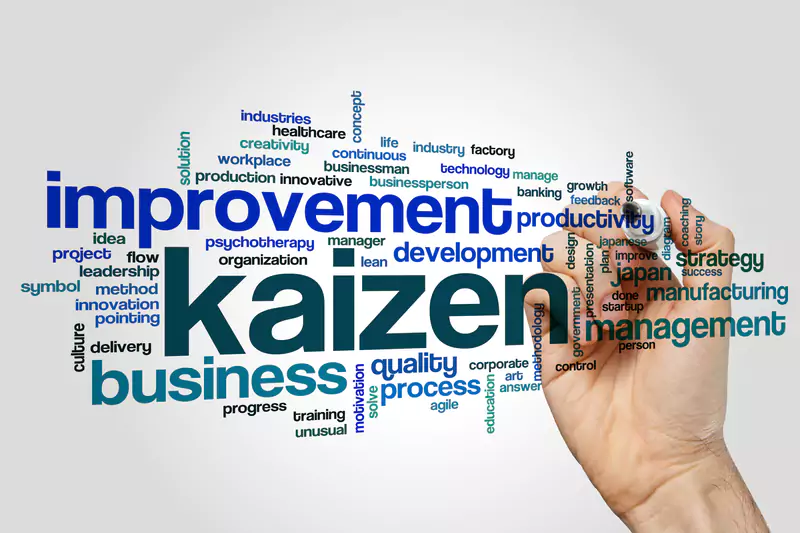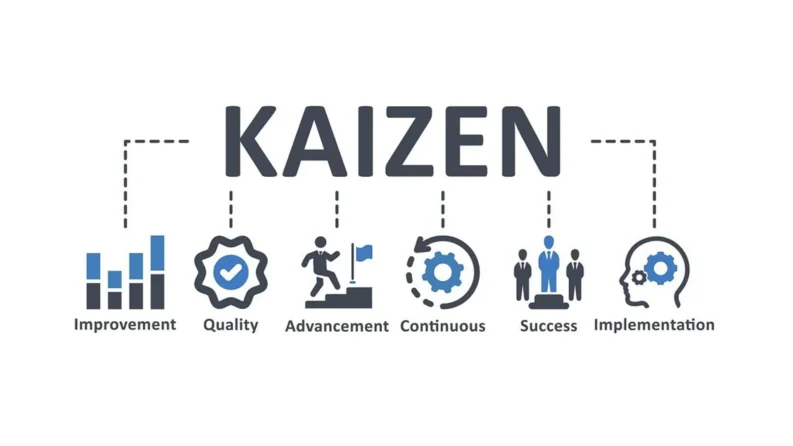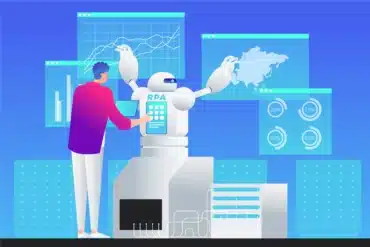By Ubaid Syed
Top 10 Programming Languages for a Kaizen Software Training Manager to Learn in 2024
As a Kaizen Software Training Manager, staying updated with the latest programming languages is essential to continuously improving software development processes. This knowledge helps in training teams effectively, ensuring they are equipped with the best tools for efficient and innovative development. Here, we explore the top 10 programming languages for a Kaizen Software Training Manager to learn in 2024, highlighting their importance and applications within the Kaizen framework.
Python
Why Python?
Python is a versatile and beginner-friendly programming language that has become a staple in software development. Its simplicity and readability make it an excellent choice for training new developers, while its powerful libraries and frameworks are ideal for advanced applications.
Applications in Kaizen Software Development
Python’s extensive libraries, such as NumPy and Pandas for data analysis and TensorFlow for machine learning, make it a valuable tool in Kaizen software development. These tools can help automate processes, analyze performance data, and implement continuous improvement strategies.
Key Features
- Easy to learn and use
- Extensive standard library
- Strong community support
- Ideal for automation and data analysis
- JavaScript
Why JavaScript?
JavaScript is essential for web development, enabling interactive and dynamic web applications. As the backbone of web development, any Kaizen Software Training Manager must understand JavaScript and its frameworks.
Applications in Kaizen Software Solutions
JavaScript and frameworks like React and Angular help build robust web applications. These applications can be used to develop training management software and other Kaizen software solutions, enhancing productivity and user experience.

Key Features
- Client-side scripting
- Wide range of frameworks and libraries
- Cross-platform compatibility
- High performance in web development
- Java
Why Java?
Java is popular for enterprise-level applications due to its stability, scalability, and security. Understanding Java is essential for managing large-scale projects and ensuring robust software solutions.
Applications in Training Management Software
Java’s platform independence and strong performance make it ideal for developing comprehensive training management software. This software can support the continuous improvement goals of Kaizen by providing efficient tools for managing training programs and tracking progress.
Key Features
- Object-oriented programming
- Platform independence
- Strong security features
- Large ecosystem and community support
- C#
Why C#?
C# is a versatile language developed by Microsoft and is widely used for developing Windows applications, game development with Unity, and enterprise software. Its integration with the .NET framework makes it a powerful tool for various applications.
Applications in Kaizen Software Development
C#’s strong performance and rich feature set make it suitable for developing sophisticated Kaizen software solutions. It can be used to create applications that streamline processes, manage data, and enhance productivity in a Kaizen environment.
Key Features
- Object-oriented and component-oriented
- Integration with .NET framework
- Strong support for Windows applications
- Ideal for game and enterprise application development
- SQL
Why SQL?
SQL (Structured Query Language) is essential for managing and manipulating databases. Data is crucial to continuous improvement in Kaizen, so understanding SQL is vital for any software training manager.
Applications in Kaizen Software Solutions
SQL queries, updates, and manages databases that store critical information for Kaizen software solutions. These databases can track performance metrics, store training records, and support data-driven decision-making processes.
Key Features
- Standard language for relational database management
- Powerful querying capabilities
- Support for data manipulation and retrieval
- Widely used in various applications
- TypeScript
Why TypeScript?
TypeScript, a superset of JavaScript, adds static typing to the language, enhancing code quality and maintainability. It is increasingly popular for large-scale JavaScript applications.
Applications in Kaizen Codes
TypeScript’s static typing helps catch errors early in development, making it ideal for maintaining high-quality Kaizen codes. It improves developer productivity and ensures robust software solutions.
Key Features
- Static typing
- Improved code quality
- Seamless integration with JavaScript
- Popular for large-scale applications
- Ruby
Why Ruby?
Ruby is known for its simplicity and productivity, with a strong focus on developer happiness. The Ruby on Rails framework has made it a popular choice for web development.
Applications in Kaizen Software
With its elegant syntax and powerful framework, Ruby is suitable for developing web applications that support Kaizen software solutions. These applications can facilitate continuous improvement initiatives and streamline workflows.
Key Features
- Simple and readable syntax
- Strong web development framework (Ruby on Rails)
- Emphasis on developer productivity
- Robust community support
- Swift
Why Swift?
Swift is Apple’s programming language for iOS and macOS development. Its modern features and performance make it the preferred choice for developing applications within the Apple ecosystem.
Applications in Training Management Software
Swift is ideal for developing mobile applications that can support training management software. These applications can provide on-the-go access to training materials and performance-tracking tools, aligning with Kaizen’s continuous improvement goals.
Key Features
- Modern and safe language
- High performance
- Strong integration with iOS and macOS
- Growing popularity and community support
- Kotlin
Why Kotlin?
Kotlin is a modern programming language that runs on the Java Virtual Machine (JVM) and is fully interoperable with Java. It is the preferred language for Android development.
Applications in Kaizen Software Development
Kotlin’s concise syntax and modern features make it suitable for developing mobile applications that support Kaizen software solutions. These applications can help track performance metrics, manage training programs, and facilitate continuous improvement.

Key Features
- Concise and expressive syntax
- Interoperable with Java
- Official language for Android development
- Strong community support
- Go
Why Go?
Go, also known as Golang, is a statically typed language developed by Google. It is known for its simplicity, concurrency support, and performance, making it ideal for system-level programming and backend development.
Applications in Kaizen Software Solutions
Go’s performance and scalability make it suitable for developing backend services that support Kaizen software solutions. These services can handle large-scale data processing and provide the infrastructure for continuous improvement tools.
Key Features
- Simple and efficient syntax
- Excellent concurrency support
- High performance
- Strong for backend and system-level programming
Conclusion
In the fast-paced world of software development, staying updated with the latest programming languages is crucial for a Kaizen Software Training Manager. Understanding these languages enhances personal skills and enables the training manager to equip their team with the best tools for continuous improvement. The languages discussed in this article, including Python, JavaScript, Java, C#, SQL, TypeScript, Ruby, Swift, Kotlin, and Go, offer unique benefits and applications within the Kaizen framework.
By mastering these languages, a Kaizen Software Training Manager can effectively implement Kaizen software solutions, manage training programs, and support the continuous improvement initiatives central to the Kaizen philosophy. Whether developing robust training management software, enhancing efficiency with Kaizen codes, or creating innovative applications with grand Kaizen codes, these programming languages provide the foundation for achieving excellence in software development.







